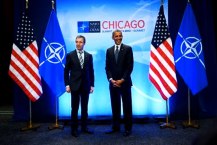 The energy resources accumulated underground for long years, until, not resources but, cunning political leaders “discovered” or emerged. The significance of energy already understood during World War II, as Winston Churchill stated “A drop of oil is more valuable than a drop of blood”.
The energy resources accumulated underground for long years, until, not resources but, cunning political leaders “discovered” or emerged. The significance of energy already understood during World War II, as Winston Churchill stated “A drop of oil is more valuable than a drop of blood”.
The great empire, starting from Riga in Baltic (1914) ending in Vladivostok in Pacific completely turned to Asian state after lost its territories in the wars. Continental identity of Russia still remains unknown, since majority of its territories covers Asian continent while focused in Europe in terms of economic, political and demographic factors. Therefore, Russia is weaker in comparison with last three centuries. Lack of common security is the main problem of the national and foreign policy of government.
Modern Russian civilization is the heir of Kyiv-Russian state. Russia culturally has always been unique. Russia has always been different from its western neighbours with its various types of Christianity and writing and drawing system emanating from Byzantium tradition. Previous Russian leaders, such as Peter the Great, Catherine the Great and even Lenin were supporters of modernization and are western-oriented in terms of development. After establishment of Saint-Petersburg which considered as a “Window of Russia to the West”, cultural, military and political relations of the country with Europe begun to gain a momentum. Hence, Russia enlarged toward Eastern Europe in a little while and pulled Poland, Belarus and Ukraine into its own territories. In this regard, notwithstanding Russia geographically situate in Asian continent while economically, politically and culturally looks at Europe. Notwithstanding, Russia faced with two great wars (WWI and WWII) in 20th century, he left both war as a winner country.
Today Russia also experienced crisis in his identity, as his neighbours getting stronger while Russia loses its traditional governor power in Eastern Europe and Asia. Russia begun to taste its weakness starting from 1990s. The eastward enlargement of NATO, pulling former Soviet countries into alliance, the Chechen war, the increasing economic power of China, and the military presence of US in Central Asian countries are the most tremendous problems for national security and foreign policy course of Russia.” [1]
Almost 20 years since the collapse of Soviet Union, Russia is seeking for its “throne” in multi-polar word order. Russia made several attempts during previous years in order to re-build its prestige. After “amazing memories” of the Cold War and ideological confrontation with West, Russia opened new page in his history. During Putin’s presidency term, Russia reviewed his national targets in order to tackle with increasing threats in the constantly changing world. In this regards, Russia considered himself as a global actor. Consequently, the resurgence of Russia as a European and Asian power reminded the Cold War to its neighbours.
 Russia does not want to host any external actor, economy, and the state in its near abroad and back-yard which are geo-economically and geo-politically important for Russia. Furthermore, Caspian basin assumes great significance with its hydrocarbon resources for the economic security of Russian Federation.
Russia does not want to host any external actor, economy, and the state in its near abroad and back-yard which are geo-economically and geo-politically important for Russia. Furthermore, Caspian basin assumes great significance with its hydrocarbon resources for the economic security of Russian Federation.
Relations with NATO still remain strained. The eastward enlargement of NATO toward Eastern Europe and touching to Russian boundaries faced with negative response by Russia. Missile Defence System project of US and the deployment of radar facilities and anti-ballistic missile shield in the Eastern Europe (Poland, Romania, and Czech Republic) is another challenge in NATO-Russian relations.
South Ossetia and Abkhazia, the secessionist regions of Georgia was the sensitive problem in the formulation of Russian foreign policy. The Russia-Georgian five-day war (7-12 August 2008) showed that Russia is ready to use military tools in order to secure its national and foreign security interests in the region and will not allow any external actors to penetrate into region. Therefore, Russian tries to keep these actors away which attempts to hamper his foreign policy priorities and putting blame to US and NATO on influencing to the decision-making process of his neighbour countries. In this context, Russia is set to build new coalition strengthening its position in the framework of Eurasian Union, CSTO (Collective Security Treaty Organization), and SCO (Shanghai Cooperation Organization). Cooperation with these organizations aims to hold a power balance with western powers and to strengthen its position in the Central Asia. However, Russia emerged as a global power in international relations system during Putin’s presidency. Russia begun to use its energy card against the neighbour states are willing for NATO membership, including to European Union member states.” [2]
In this context, the Russia’s National Security Strategy to 2020 is a noteworthy document. The National Strategy adopted on 13 May 2009, says, “One of the main long-term directions of national security in the economic sphere is energy security (Article 60.)”, including “In the long term, the attention of international politics will be focused on ownership of energy resources, including in the Near East, the Barents Sea shelf and other parts of the Arctic, in the Caspian basin, and in Central Asia (Article 11.). Russia’s National Security Strategy to 2020 aims to determine internal and external threats and took relevant measures in order to ensure the development and security of Russian Federation.” [3]
 “The National Security Strategy to 2020 was considered as useful document describing the innovative principles of domestic and foreign policy of Russia. Strategy was called even as “The Constitution of the National Security”. The National Security Strategy also aimed to secure military and political relations of Russia. The traditional negative attitude of Russia toward enlargement of NATO and US-led Missile Defense Shield in Europe which deemed undermining Russia’s nuclear capability mentioned in the Strategy as well. Further to this direction, Russia will always keep attentive in terms of NATO enlargement toward its frontiers.
“The National Security Strategy to 2020 was considered as useful document describing the innovative principles of domestic and foreign policy of Russia. Strategy was called even as “The Constitution of the National Security”. The National Security Strategy also aimed to secure military and political relations of Russia. The traditional negative attitude of Russia toward enlargement of NATO and US-led Missile Defense Shield in Europe which deemed undermining Russia’s nuclear capability mentioned in the Strategy as well. Further to this direction, Russia will always keep attentive in terms of NATO enlargement toward its frontiers.
The one of the main elements of domestic and foreign security of Russia is his energy security (as mentioned in the National Security Strategy to 2020). Any threat toward his energy security relates to his both national and foreign policy security. For instance, attempts of China to attract the export of hydrocarbon resources (from Central Asia and Caspian basin) to his country and his increasing economic influence across the borders of Russian Federation poses a great threat to Russia. The National Security Strategy also emphasizes that Russia can use its natural resources in order to reinforce its influence in the international arena against any political disorder emanating from the confrontations of the blocks. Strategy also put forward the fact that the wars on natural resources might be a source of threat for national security. Furthermore, Strategy even stresses the center of geo-political struggles (Middle East, Barents Sea Shelf and Arctic) for energy resources. The 2003-2030 Energy Strategy of Russian Federation mentions that Russia can gain “Energy State” status thanks to its hydrocarbon resources.” [4]
“The National Security Strategy to 2020 also underlines the importance of Arctic, Caspian and Siberia region. Therefore, Russia is seeking all out to gain the control over energy resources, transportation routes and pipeline systems of energy-rich countries.” [2] “From the other hand, natural gas sector is under the potential risks. Because, there is not common natural gas market as oil has. Therefore, natural gas prices are set due to the economic (as well as political) interests of states. In this regards, in 2001, Algeria, Bolivia, Egypt, Equatorial Guinea, Iran, Libya, Nigeria, Qatar, Russia, Trinidad and Tobago and Venezuela jointly established The Gas Exporting Countries Forum in Iran in order to promote a stable and transparent energy market. However, these countries are seeking to create a Natural Gas Cartel (Natural Gas OPEC).” [5]
To sum up, all above-mentioned scenarios highlights the importance of energy resources, and their role in the formulation of foreign policy, as well as national security strategy. However, usage of hydrocarbon resources must not spirit other energy-rich countries. Because, politicization of energy resources, much more depends upon the power factors of “X” states, such as geography, political reputation, economic power (development), population, foreign policy strategy, good governance (and decision-making), military capacity, notably political leaders (such as Vladimir Putin).
Bibliography
- Chris Miller, “National Security Council: Russian Strategies”, Harvard Model Congress Europe 2011, p.1-4.
- Sophia Dimitrakopoulou, Andrew Liaropoulos, “Russia’s National Security Strategy to 2020: A Great Power in the Making?”, Caucasian Review of International Affairs, Vol.4, 2010, pp.35-38.
- Russia’s National Security Strategy to 2020, 12 May 2009 No. 537, http://rustrans.wikidot.com/russia-s-national-security-strategy-to-2020
- Tomislava Penkova, “Russia’s New Security Doctrine: Security through Stable Development”, ISPI Policy Brief, N.144, June, 2009, http://www.ispionline.it/it/documents/PB_144_2009.pdf, pp.2-6.
- Ariel Cohen, “Foreign Policy and National Security Implications of Oil Dependency”, The House of Foreign Affairs Committee, March, 2007, http://foreignaffairs.house.gov/110/coh032207.pdf, p.8.
Note: You can find original article in the web-site of Strategic Outlook. Please see the link: http://www.strategicoutlook.org/asia—pasific/news-national-security-priorities-of-russia-in-the-context-of-energy-security.html




Discussion
No comments yet.